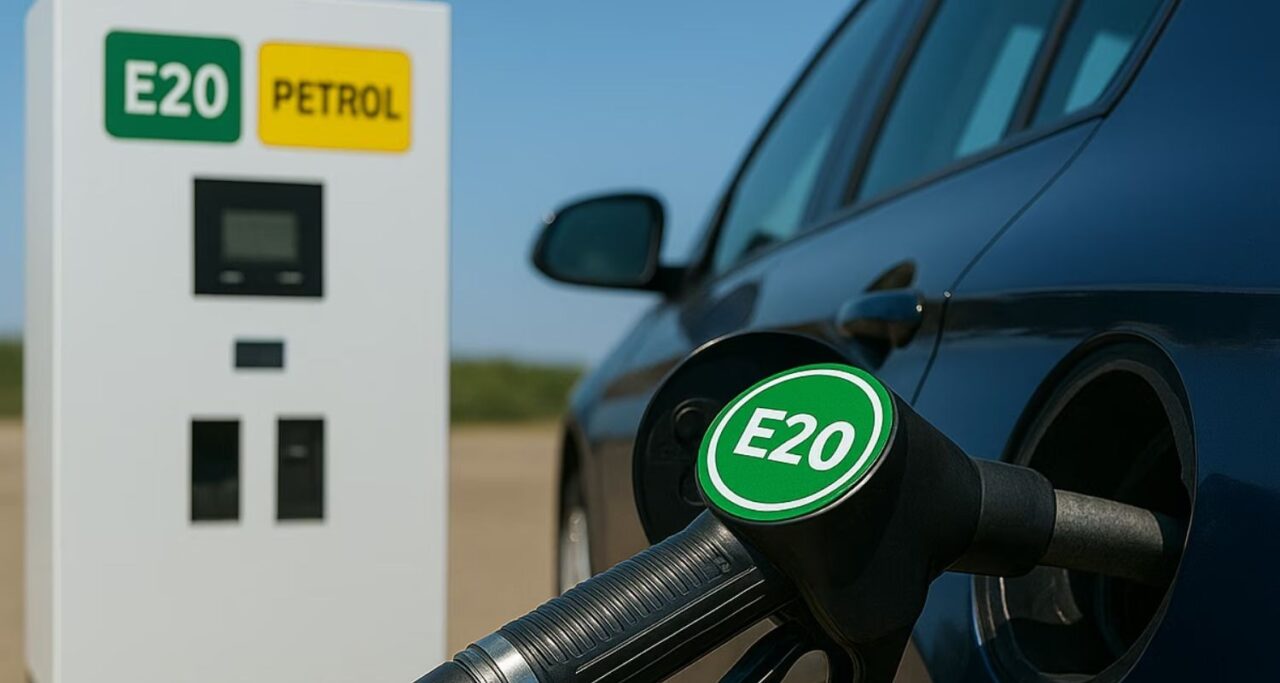Introduction
The Supreme Court of India has ruled in a historic judgment in support of the government’s implementation of 20% ethanol-blended petrol (E20) and rejected a Public Interest Litigation (PIL) seeking to halt the adoption of E20 across the country.
The case highlights the challenge between promoting clean energy programs to reach climate targets and safeguarding consumer concerns, such as compatibility of vehicle fuel. In this Legal Note, we look at the origins of the E20 policy, the central legal and technical themes at play, the most recent developments in adjudication as well as the wider legal significance of the Court’s ruling in India’s energy and environment domain.
Background
The Indian government requirement of all petrol to contain 20% ethanol is designed to help the country lower its reliance on imported fossil fuels, reduce greenhouse gas emissions and assist farmers of sugarcane who in turn supply the ethanol. The program is in line with India’s envisaged renewable energy goals to be achieved under National Bio-Ethanol Policy.
However, the policy was challenged in a PIL filed by advocate Akshay Malhotra on the ground that the large number of vehicles on the road, especially those manufactured till 2023, may not all be compatible with E20. The petition cautioned that this can lead to vehicle malfunctions, weakened gas mileage, engine harm and insurance claim complications, all of which are financial and safety risks.
The PIL, seeking the court’s directive to retain ethanol-free petrol (E0), demanded clear labels on the ethanol content in fuel sold at stations producing as also public awareness drive, and also country-wide scientific research on E20 on different vehicles.
Key Points
- The Petitioner laid strong emphasise on the importance of the freedom of choice for consumers as well as the requirement for customer protection, by submitting that the choice to purchase E0 fuel should be made available to customers who may, for example, be consumers of old cars which were not designed to be operated on E20 fuels, being need of those vehicles being served on a 0% ethanol. The absence of such an alternative, the petition alleged, would infringe on consumers’ statutory rights contained within the Consumer Protection Act when it arbitrarily limits which fuels are available, resulting in potential harm or financial loss.
- Another issue was the lack of proper labelling and notice at the pump for ethanol content. The PIL contended that the ill-informed customers being coerced to fill E20 may unknowingly damage their vehicles and may, in fact, invalidate manufacturer warranty and insurance claims, being non-compliant with approved fuel standards.
- On the technical front, the petitioner had relied on the reports, including those of governmental bodies like NITI Aayog, to the effect that vehicles not meant for E20 may face a reduction in efficiency to an extent of 6-8% and even risk of engine wear or damage.
- On the defence side, the government, through the Attorney General, responded that the E20 initiative is well-researched, consulted, and is driven by good public policy. It emphasized the importance of the initiative for national energy security, emissions reductions and for the economy of agriculture, specifically cane growers.
Recent Developments
Detailed State Noticing both the sides, the Court bench, comprising Justices BR Gavai (CJ) and K Vinod Chandran, heard the detailed submissions. “As energy and environmental policy are inherently technical, economic, and scientific, the Court emphasizes that these policy judgments correspond to the area normally reserved to the executive. “Interference by courts is called for only in case of manifest constitutional infraction or in case the conduct of the bench or the bar offends the sense of justice.”
The Court carefully considered claims of vehicle incompatibility, potential consumer harm, and the absence of labels.
However, these fears were not enough to trump the government’s carefully considered policy decision. The Court was satisfied with the government’s undertakings – that the roadmap the blending of ethanol had followed was based on expert advice, and system(s) were available to educate consumers and for the industry to adapt – and felt no need to issue directions after dismissing the PIL.
Although the Court rejected demands for ethanol-free petrol and strict labelling requirements, it recognized that the requirement for administrative vigilance remained.
Conclusion
The decision exhibits judicial modesty, deference to government policy made on the basis of scientific and economic calculations. It adds to the momentum for weaning consumption from fossil fuels and helps sugarcane farmers who have little else to sell but ethanol. However, the verdict emphasizes the importance of continuing consumer education, a clear system of labelling fuels and manufacturer responsibility as the E20 program continues to ramp up.
Taken overall, the decision reinforces policy stability and trajectory in the Indian green energy transition and leaves the doors open on fuel standards and consumer protection in the future.
“PRIME LEGAL is a full-service law firm that has won a National Award and has more than 20 years of experience in an array of sectors and practice areas. Prime legal falls into the category of best law firm, best lawyer, best family lawyer, best divorce lawyer, best divorce law firm, best criminal lawyer, best criminal law firm, best consumer lawyer, best civil lawyer.”
WRITTEN BY Stuti Vineet


